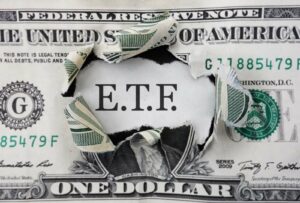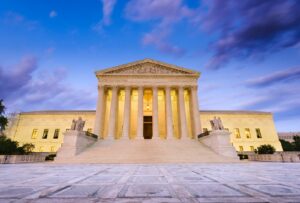
Despite pressure and wishful thinking, Senator Joe Manchin (D-WV) won’t be changing his mind on energy any time soon. The reason? His own energy company, Enersystems, which represents 30% of his net worth and 70% of his portfolio income.
To be fair, he’s not exactly hiding anything. Manchin has a long history with coal in West Virginia, and served as President of Enersystems, a privately-held coal & resource company, in the 1990s. He’s still currently a key principal, holding an estimated $3,000,000 in non-public stock.
The Numbers: Along with his direct investment, Manchin receives substantial dividends from Enersystems annually. In 2019 and 2020, he earned an estimated $613,142 and $491,949 in dividend income. This equates to approximately 71% of his total portfolio income.
Enersystems is a large portion of Manchin’s overall investments. In 2020, his assets are estimated at slightly over $8,600,000, with 56% of that being stocks. In comparison to this, the energy company weighed in at 65% of that stock portfolio – and 35% of his entire net worth.
If guessing someone’s political mindset was based on just their money, Joe Manchin might as well be holding a flashing neon sign.
Exactly Who He Says He Is: As of 2021, the Democratic Senator from West Virginia is debatably one of the most watched members of Congress.
From afar, Manchin’s political position looks shaky at best. He sits at the ideological crossroads of two opposing parties. In a sense, he could be either a bipartisan hero or the friend of neither. However, he’s likely quite comfortable where he is.
How so? A person’s financial investments can be very telling. While Manchin touts compromise as his personal solution to congressional deadlock, he’s unable to compromise on his own position. Having over a third of one’s net worth be reliant on the success of resource extraction would make someone quite defensive of that industry.
During a CNN interview in 2019, Manchin more or less backed this up in a conversation about the Green New Deal:
“I’ve got to make sure that our country has affordable, dependable, reliable energy 24/7, but you can’t just be a denier and say, ‘Well, I’m not going to use coal. I’m not going to use natural gas. I’m not going to use oil.’”
This looks to be a very reasonable, middle-of-the-road stance on energy reform. However, to the rest of his party (and arguably Congress), he’s the one unwilling to compromise. Whether or not you agree with his position, his reasons for doing so are less cut and dry than his own morality.
Until Joe Manchin’s energy company decides to go green, he won’t be budging his position on clean energy anytime soon.
An Honest Man?: With the Bipartisan Infrastructure Bill now passed by the Senate, and a large focus of its investment being towards electric & environmental infrastructure, one would think that Manchin had caved.
However it’s important to remember the changes the bill has gone through. Originally, President Biden’s infrastructure proposal came to about $1.2 trillion, and the bipartisan, heavily bickered-over revision passed with about $1 trillion.
Not a big difference – so what’s the point? The contents were only slightly changed around. This one, though, was redrafted by a group of Senators from across the aisle. And who played a major role in this? Senator Joe Manchin.
In the end, Manchin got what he wanted politically. Fossil fuels will likely remain a receding, but ever-present part of America’s energy consumption, up until the next election cycle. More importantly, he bolstered his own bipartisan, “man of the people” image that’s been so cleverly crafted.
Joe Manchin is still tied strongly to coal & natural gas, but at least he’s wearing it on his sleeve. He’s not trying to hide his position, especially to his constituents in West Virginia. In fact, Manchin disclosed more information in his financial disclosures than he had to – giving exact figures on his dividends from Enersystems.
Political maneuvering may go a long way in Washington – but in an era of government mistrust, some degree of honesty is a refreshing sight.





